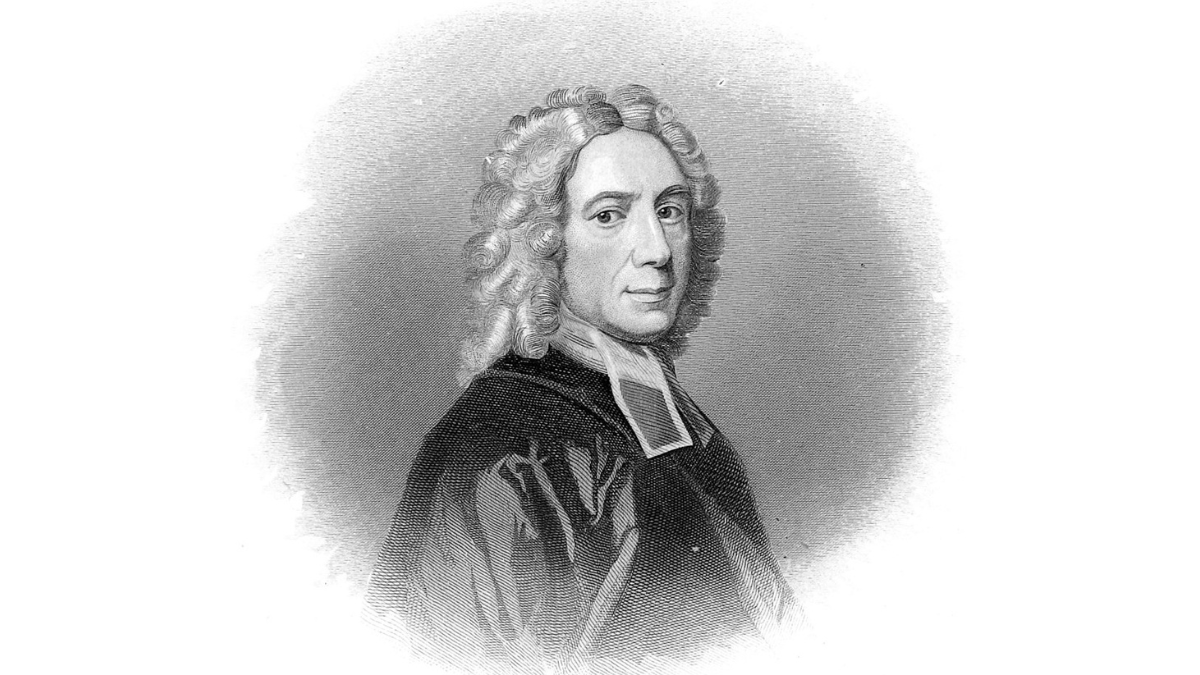

Lenten Hymns from Isaac Watts
Like the sacred songs of the Advent season, Lenten hymns are wonderful tools for theological instruction and worship.
03/3/23
John Stonestreet Kasey Leander

Lent is set aside in the Church calendar to help believers prepare, through 40 days of prayer and fasting, for remembering Holy Week and celebrating Easter. The season of anticipation begins with the Ash Wednesday proclamation, “Remember that you are dust, and to dust you will return.” In a world desperate to avoid reminders of mortality, nothing could sound stranger.
Even for Christians, in fact, these words can seem out of place. After all, aren’t Christians defined by resurrection? Why should a people who follow the risen Christ dwell on mortality and death?
There are at least two reasons. First, Christians can easily forget in this late, modern age that we are creatures and not gods, and that we will die. These facts are sober reminders of how we should approach life. Second, though the death and resurrection of Christ is the central and defining event in all human history, Easter can, in the busyness of life, sneak up on us. Lent is a way to prepare and to remember.
Like the sacred songs of the Advent season, Lenten hymns are wonderful tools for theological instruction and worship. For example, in the early 18th century when much of the Church was committed to singing only the metrical Psalter, Sir Isaac Watts (1674-1748) believed that “[The psalms] ought to be translated in such a manner as we have reason to believe David would have composed them if he had lived in our day.”
Just as his hymn “Joy to the World” has long been a staple of Christmas Day services, two hymns by Watts are still widely used during Lenten services. “Alas, and Did My Savior Bleed?” encourages a response to both that Christ died and why Christ died:
Alas, and did my Savior bleed
And did my Sovereign die?
Would He devote that sacred head
For such a worm as I?
Was it for sins that I had done
He groaned upon the tree?
Amazing pity, grace unknown
And love beyond degree
My God, why would You shed Your blood
So pure and undefiled
To make a sinful one like me
Your chosen, precious child?
Well might the sun in darkness hide
And shut His glories in
When Christ, the mighty Maker, died
For man, the creature’s, sin
Thus might I hide my blushing face
While His dear cross appears
Dissolve my heart in thankfulness
And melt my eyes to tears
My God, why would You shed Your blood
So pure and undefiled
To make a sinful one like me
Your chosen, precious child?
My God, why would You shed Your blood
So pure and undefiled
To make a sinful one like me
Your chosen, precious child?
Watts also aims our attention squarely at the cross in what might be his best-known hymn, “When I Survey the Wondrous Cross”:
When I survey the wondrous cross
on which the Prince of glory died,
my richest gain I count but loss,
and pour contempt on all my pride.
Forbid it, Lord, that I should boast
save in the death of Christ, my God!
All the vain things that charm me most,
I sacrifice them through his blood.
See, from his head, his hands, his feet,
sorrow and love flow mingled down.
Did e’er such love and sorrow meet,
or thorns compose so rich a crown?
Were the whole realm of nature mine,
that were a present far too small.
Love so amazing, so divine,
demands my soul, my life, my all.
These are just two of the contributions that Isaac Watts made to Christ’s Church. There are many more. By pointing our attention at the cross, he served Christ and all of us well.
This Breakpoint was co-authored by Kasey Leander. For more resources to live like a Christian in this cultural moment, go to colsoncenter.org
Have a Follow-up Question?
Up
Next

Related Content

© Copyright 2020, All Rights Reserved.













